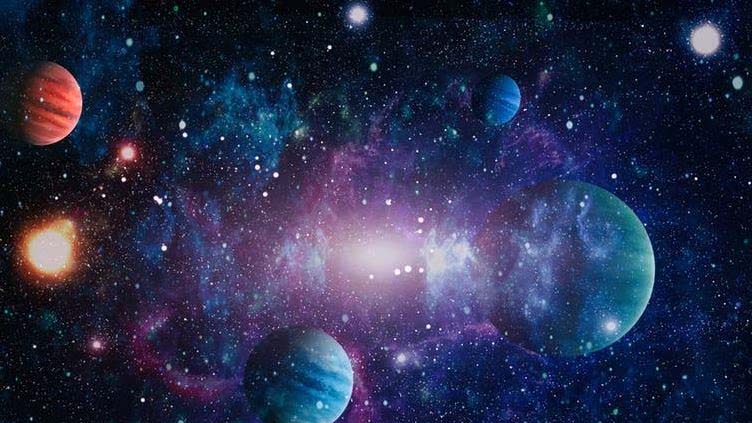Study finds out universe has no dark matter

Technology
Study negates the fact that our universe is made up of dark matter and dark energy
(Web Desk) - A study from the University of Ottawa, a new theory challenges the very foundations of our understanding of the cosmos.
Led by physics professor Rajendra Gupta, the research suggests that the prevailing notion of dark matter might be on shaky ground.
Dark matter, a mysterious substance thought to make up a significant portion of the universe, has long puzzled scientists due to its elusive nature.
But Gupta's work, utilizing a blend of covarying coupling constants (CCC) and "tired light" (TL) theories, presents a bold alternative.
The CCC+TL model, as it's known, posits that light loses energy over vast cosmic distances and that the fundamental forces of nature wane as time progresses. Through meticulous testing, Gupta and his team have found compelling evidence supporting this revolutionary idea.
This flies in the face of the current cosmological paradigm, which suggests that the universe comprises three main components: normal matter, dark energy, and dark matter.
According to this theory, dark energy constitutes around 70% of the universe, while dark matter makes up roughly 25%, leaving just a small fraction for ordinary matter.
However, Gupta's research shakes up this understanding, implying that dark matter might not be the missing puzzle piece after all. Instead, it proposes a new framework that challenges the conventional wisdom, inviting a re-evaluation of our understanding of the universe's composition and dynamics.
Rajendra Gupta, Physics professor at the Faculty of Science, Ottawa, said, “The study’s findings confirm that our previous work (“JWST early Universe observations and ΛCDM cosmology”) about the age of the universe being 26.7 billionyears has allowed us to discover that the universe does not require dark matter to exist.
In standard cosmology, the accelerated expansion of the universe is said to be caused by dark energy but is, in fact, due to the weakening forces of nature as it expands, not due to dark energy.”
When light is shifted toward the red portion of the spectrum, it is called a “redshift.” The researcher analyzed data from recent articles on the distribution of galaxies at low redshifts and the angular extent of the sound horizon at high redshifts.
Gupta said, “There are several papers that question the existence of dark matter, but mine is the first one, to my knowledge, that eliminates its cosmological existence while being consistent with key cosmological observations that we have had time to confirm.”
This discovery opens up a new frontier in cosmology, sparking excitement and debate among scientists worldwide. As researchers delve deeper into Gupta's findings, the quest to unravel the mysteries of the cosmos takes an unexpected turn, promising new insights into the nature of reality itself.


